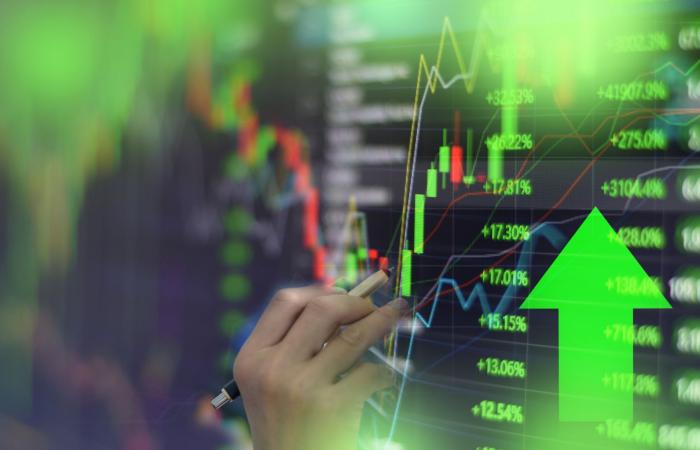RIO DE JANEIRO, BRAZIL – The Brazilian stock market closed bullish for the fourth consecutive week, driven by the record-breaking day in the American market and by the high flow of foreign capital in the country. This should lead the IBOVESPA index to register the best monthly performance since December 1999.
On Friday, November 27th, the index was up by 0.32%, to 110,575 points. This week alone, the IBOVESPA accumulated an increase of nearly 4.328%; the monthly high stands at 17.76%. Vale (VALE3) pushed the increase with the authorization to restart and expand operations in Pará, in another step to reclaim the title of the world’s largest producer of iron ore.
Two of the three main indexes of the American stock market closed at record-breaking peaks in the trading session shortened by the Thanksgiving holiday the day before. The S&P 500 yesterday posted a 0.3% climb and closed the day at 3,638 points, a new record. The Nasdaq climbed 0.9% to 12,205 points, another historic peak. The Dow Jones Industrial Average closed up 0.1%, at 29,910 points, just below the 30,000 points achieved on Tuesday.

On the cumulative total for the week, the Dow Jones and the S&P 500 were up 2.2% and 2.3%, respectively. In turn, the Nasdaq recorded a weekly high of nearly 3%. Yesterday’s trading session ended earlier, at 3 PM.
Among the main drivers behind the sequence of global stock market highs are progress in coronavirus vaccine trials and Joe Biden’s victory in the United States, which spurred the search for investment in emerging countries. “The Fed [American central bank] also declared this week that it intends to buy more assets, which encourages risk-taking and favors markets in countries like Brazil,” says Gustavo Cruz, strategist at RB Investments.
According to B3 data, this month of November is now recording the largest inflow of foreigners to the stock market. Up to November 24th alone, international investors’ balance was positive in the month at R$29.47 billion (US$4.89 billion) – not considering the inflow of public offerings. The second month with the highest inflow of foreign funds had been October, when the balance was positive at R$2.867 billion – or 90% below the November preliminary result.
The main beneficiaries of the trend are blue-chip stocks. “The stocks with greater prominence on the IBOVESPA are the most attractive to foreign investors. Itaú (ITUB4) and Vale (VALE3) are the main beneficiaries”, says Paloma Brum, Toro Investments economist. Vale is bullish on the stock market, heading for its tenth high in eleven trading sessions and renewing its historical peak.
The conditions are also driving the currencies of emerging countries. The cash dollar fell by 0.19%, to R$5.326, after fluctuating between R$5.381 (+0.84%) and R$5.321 (-0.29%). In the week, the rate retreated 1.13%, entering the second consecutive week of contraction. In November, the dollar has declined 7.18% on its way to the highest monthly drop for the month ever recorded, but it still up by 32.72% in 2020.
On investors’ radar on Friday were also IGP-M (General Market Price Index) data referring to November, which again exceeded the estimates. In the month, inflation measured by the FGV climbed 3.28% compared to the expected growth of 3.22%. In the 12-month cumulative, the IGP-M climb is now 24.52%.
“This long sequence of surprises in recent weeks suggests that market models are somewhat biased, and may continue to underestimate pressure on wholesale prices. Should the emergency aid be extended for another two months, we would have yet another wholesale price pass-through to consumers, which could contaminate cyclic items. In this scenario, we would have an anticipation of the start of the monetary policy increase cycle,” according to Exame Research analysts.
The September unemployment rate was also disclosed yesterday morning and, according to the IBGE (Brazilian Institute of Geography and Statistics), rose from 14.4% to 14.6%. The figure is approximately three percentage points above its pre-pandemic level. On the other hand, economists estimate that the rate should be at around 20% considering the number of people who were looking for a job before the pandemic and are no longer doing so.
Among the factors contributing to the decline in job search are the emergency aid and the economic crisis itself, which has cut the number of jobs. According to CAGED (General Register of Employed and Unemployed) data released on Thursday, the country closed 171,139 formal jobs between January and October this year.
Source: Exame

